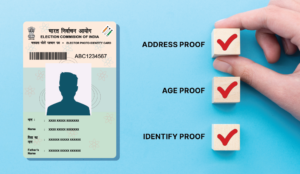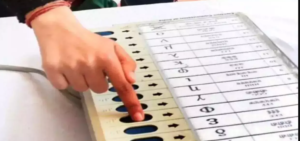Lok Sabha Elections 2024
The Lok Sabha Elections kick off with the first phase starting on April 19. Spanning over seven phases, the elections will continue until June 1, with results announced on June 4. As a citizen, it is crucial to understand your voting rights to participate effectively. This article provides an overview of the essential rights and procedures every voter should know.
Lok Sabha Elections 2024 Understanding Your Voting Rights
1. Eligibility and Voter Registration
- Minimum Age Requirement: Citizens who are 18 years old or above as of January 1, 2024, are eligible to vote in the general elections.
- Single Registration: A voter can only be registered at one location. Multiple registrations are illegal. Ensure you register to vote at your current place of residence.
- Updating Voter Details: If you move within the same constituency, use Form 8 to update your voter registration details.
2. Acceptable Identification Proofs

Primary Identification: Electors must present either the Electors Photo Identity Card (EPIC) issued by the Election Commission or other approved identification documents.
- Valid Identification Documents:
- Aadhaar card
- MNREGA job card
- Health insurance smart card from the Ministry of Health and Family Welfare
- Driving Licence
- PAN card
- Smart card by the Office of Registrar General and Census Commissioner
- Passport
- Pension document with a photograph
- Government-issued identity cards (Central or State)
- Identity cards for MLAs or MPs
Note:
- Possessing an EPIC or another valid ID doesn’t guarantee voting rights. Ensure your name is on the electoral roll.
3. How to file Electoral complaints
Contact: Reach out to your Electoral Registration Officer (ERO) or use the National Grievance Services portal or Voter Helpline app.
4. What to do if you press the wrong button of Electronic Voting Machine (EVM)

- Incorrect Vote: If you mistakenly press the wrong button on the EVM, inform the polling officer to reset the machine and allow you to vote again.
5. Know Your Rights during Voting
- Refusal to Vote: Voters can choose not to vote even after reaching the polling booth, expressing their unwillingness to participate in the electoral process.
- NOTA Option: Voters can use the ‘None Of The Above’ (NOTA) option to indicate dissatisfaction with all candidates.
6. How to Address Voting Fraud
- Unauthorized Voting: If someone votes on your behalf, use Rule 49P to cast a “Tendered Ballot Paper” and report the incident to the Presiding Officer.
7. Reporting Electoral Malpractices
- cVIGIL App: Use this citizen mobile application to report electoral violations, capturing images or videos anonymously. The Election Commission commits to responding within 100 minutes.
8. Voting Guidelines
- Photography Restrictions: Taking photos or videos inside polling booths is strictly prohibited. Posting selfies from polling booths on social media can lead to imprisonment for up to three months.
9. Special Voting Provisions
- Home Voting: For the first time in a Lok Sabha Election, voters above 85 years and Persons with Disabilities (PwDs) with a 40% benchmark disability can opt for home voting.
- Proxy Voting: Service voters, including armed forces members, government employees posted abroad, and state armed police, can appoint a proxy to vote on their behalf.
By understanding these rights and procedures, you can ensure your participation in the 2024 Lok Sabha elections is smooth and effective. Make your vote count!











